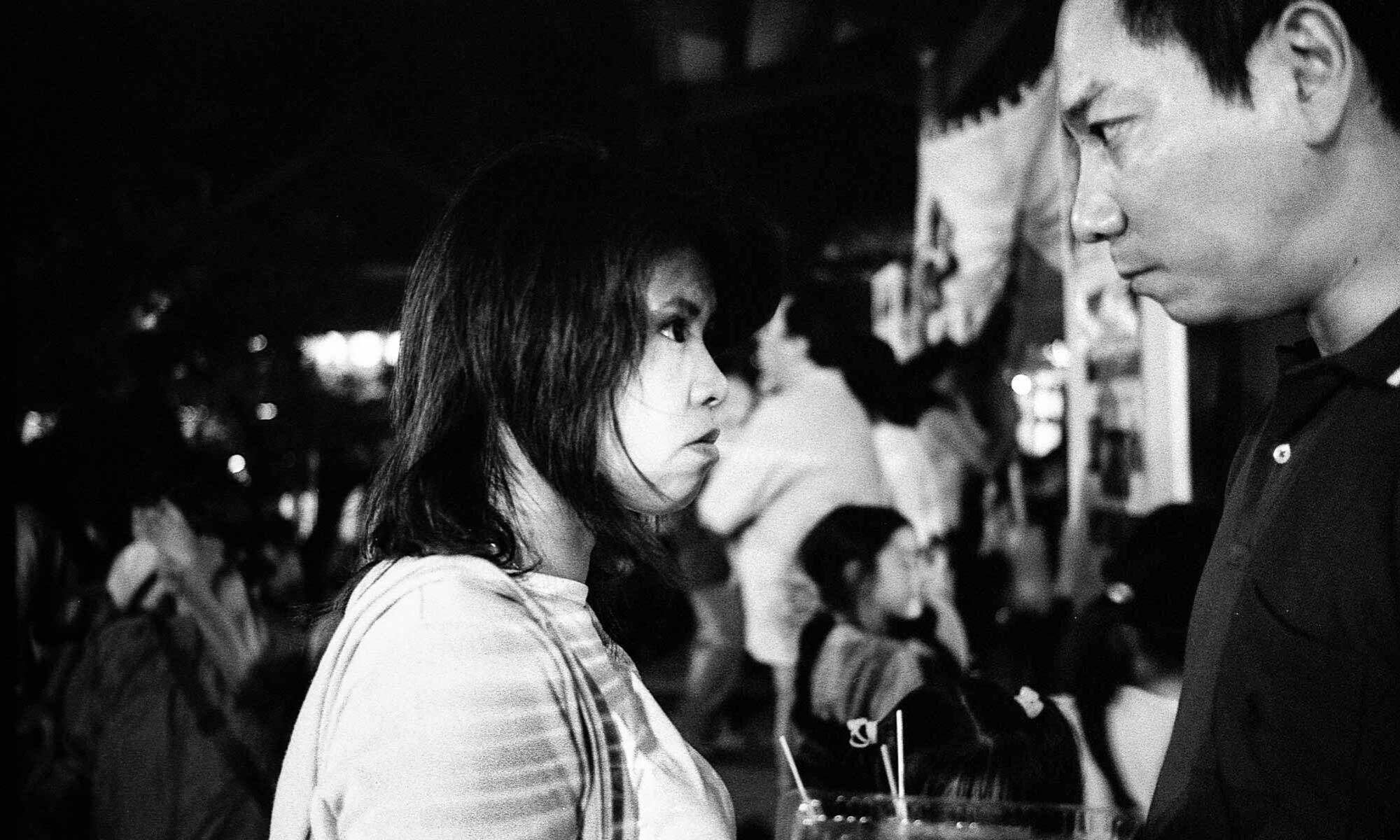
In Japanese, sitting in a circle is called kurumaza, literally, “wheel seating.” A kurumaza formation can put others off, since all they see of the people forming the circle is their backs, which seems to be saying, “The rest of you are outsiders.” To be sure, when the kurumaza is formed on the ground outdoors, a stranger standing on the outside of the circle can also see the faces of those on the far side. But the attention of those faces is riveted on the others in the circle. The stranger can be standing as little as a meter away from the ring, and still the group will pay virtually no attention. This obliviousness to others can easily be observed, for example, in the tightly packed groups of revelers that fill Ueno Park in Tokyo for flower-viewing parties under the trees during the cherry blossom season.
The above was taken from Sitting in a Circle: Thoughts on the Japanese Group Mentality, a lecture given a few years ago by Japanese poet and critic Makoto Ooka, at the Donald Keene Center of Japanese Culture at Columbia University (as part of the Soshitsu Sen Distinguished Lectures on Japanese Culture).
Ooka uses the Japanese word kurumaza (sitting in a circle) as the basis for a fascinating look at the oft-discussed “group” culture of Japan, seen not only in its systems (political, corporate) nor its cultural manifestations (karaoke, hanami), but also in its language and poetry. Ooka is most concerned with, to quote him, “how the traditional kurumaza society and the desire for solitude interact within the spirit of the poet….”
I was particularly struck by this paragraph of “poetic” etymology:
At one time I became aware of and took an interest in the major role the words au (to meet, to come together, to be in accord, to fit) and its derivative awasu (to bring together, to bring into accord) play in the Japanese language. What brought my attention to this was an observation that the Japanese language scholar Ono Susumu made during a round-table discussion in which we both took part. Ono pointed out that osafu, an old form of the verb osaeru (to restrain, to hold down), was formed as a compound of the verbs osu (to push) and afu, and earlier form of au. He gives a more precise explanation of the word in his laborious work Iwanami kogo jiten (Iwanami Dictionary of Classical Japanese): “To continue pushing, adjusting one’s force to that of the other party so as not to move the other party.” In other words, this single word—which is still in everyday use—has woven into it the awareness of a relationship in which the performer of the action senses the other person’s force and increases or decreases the amount of force applied so as to match it.
But read the whole thing. Rest assured, those tired old proverbial nails, you know the kind that stick up only to get hammered down, which are de rigueur in most articles about Japan and its group culture, aren’t mentioned.
